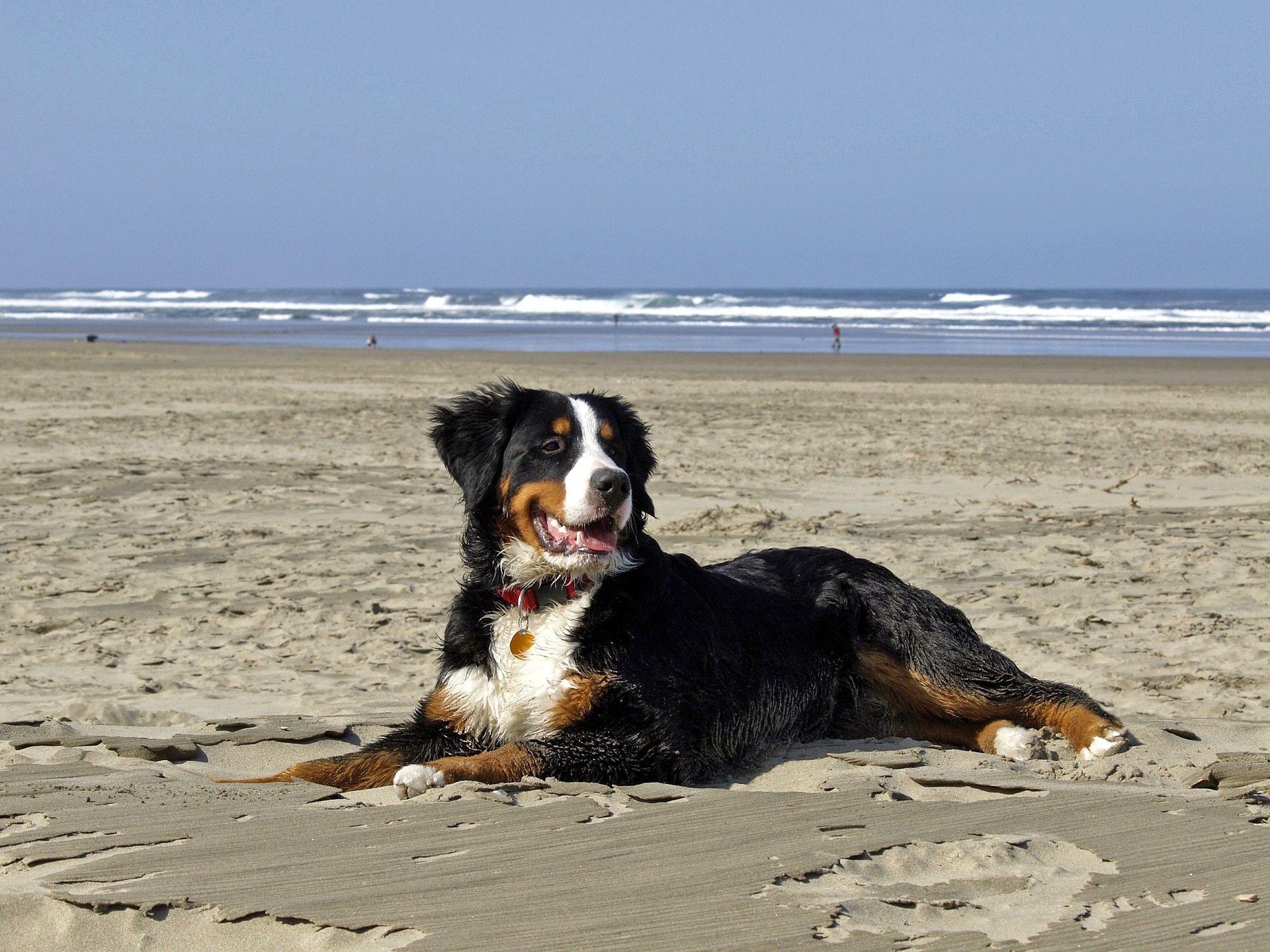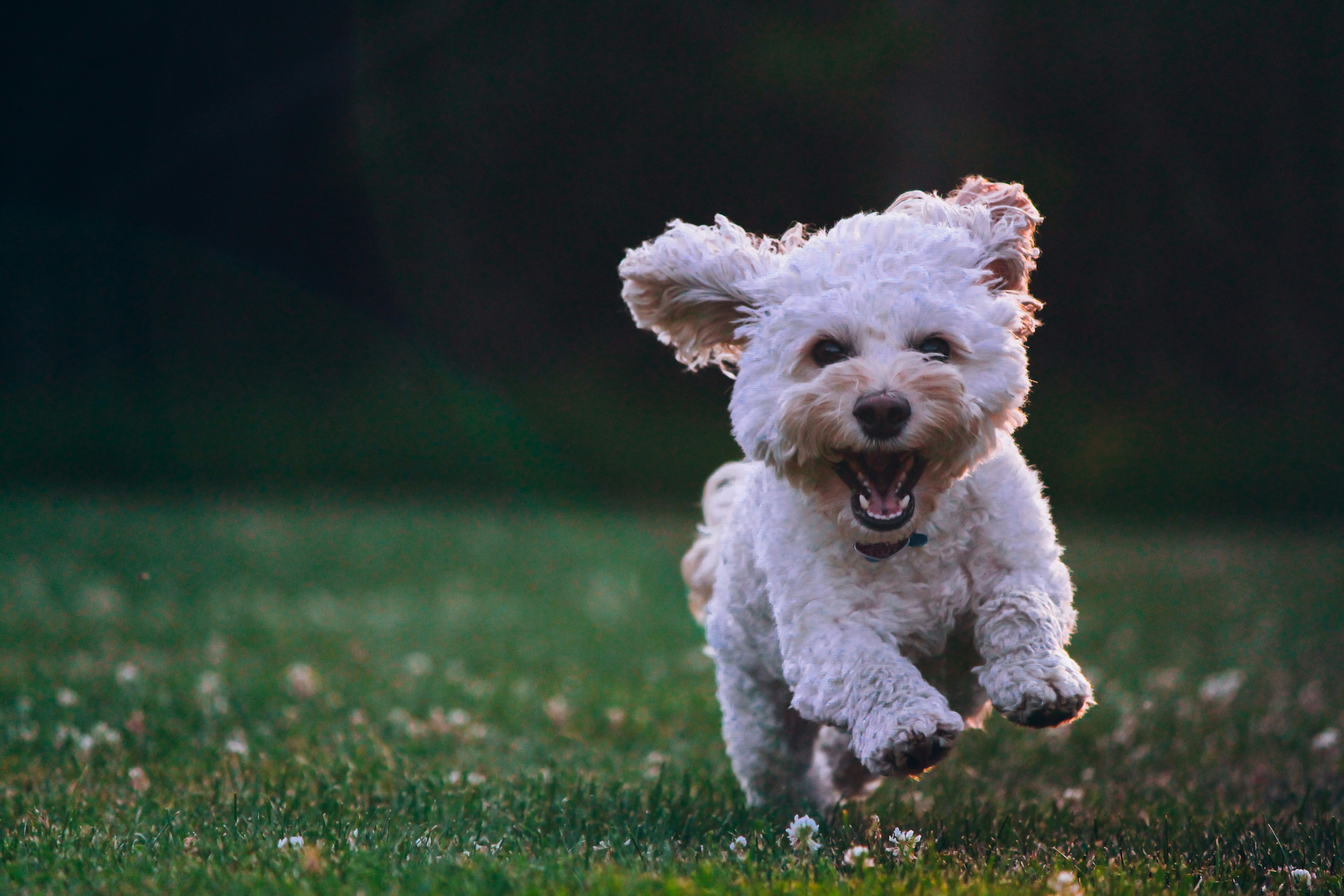Bernese Mountain Dog

| Official Name | Bernese Mountain Dog |
| Common Name | Bernese Mountain Dog |
| Pet Height | 23 to 27 inches |
| Pet Weight | 70 to 115 pounds |
| Lifespan | 7 to 10 years |
| Good With | cats, children, dogs, families, seniors |
| Temperament | aloof, friendly, gentle, playful |
| Intelligence | high |
| Shedding Amount | frequent |
| Exercise Needs | medium |
| Energy Level | calm |
| Vocal Level | when necessary |
| Drool Amount | medium |
| Breed Size | large (61 - 100 lbs) |
| Coat Length | long |
| Colors | black, brown / chocolate / liver, white |
| Patterns | tricolor |
| Other Traits | cold weather tolerant, easy to train, suitable for first-time pet owners, good hiking companion, prone to health issues, requires lots of grooming, strong loyalty tendencies |
The Bernese Mountain Dogs are also referred to as "Berners." They are diligent, intelligent, and devoted companions who enjoy hanging out with their owners. Their unique, sweet, calm, carefree, and dedicated personalities make them a favorite among families, especially those with young children. Whether playing or working, they are happiest whenever beside their owners, no matter where that might be.
Bernese Mountain Dog Appearance
These large breeds weigh up to 70 to 115 lbs. with a 23 to 27.5 inches height. They have a warm and friendly character and dark brown eyes, which are pretty expressive. Their thick coats come in three colors, black, ack, and white, with rust patterns on their face. Jami-Lyn Derse, veterinarian and founder of Veterinary Housecall Care in Chicago, said that because of the mask-like design on their faces, for her, Bernese mountain dogs seem to have a smiling look. They also have a relatively silky long, wavy, or straight coat.
Bernese Mountain Dog Personality
These breeds are easy to train and always eager to please their owners. According to Jami-Lyn Derse, Bernese Mountain Dogs are fast learners, intelligent, and remarkably loyal dogs. She added that their popularity is increasing in the U.S. and refers to these breeds as "low-energy" that love relaxing with their human family, whether on the couch or in the backyard. These dogs don't like being left alone. Being patient, calm, and affectionate makes them the perfect pet for families. If given early socialization, they get along great with other pets, whether cats or dogs.
Due to their massive size and fearsome bark, they can be excellent watchdogs since, historically, these breeds were livestock protectors. But despite this, owners must not assume real threats from their fearsome bark since they have a gentle and loving nature.
Bernese Mountain Dog Living Needs Care
Their thick fur makes Bernese mountain dogs most comfortable in colder climates. According to Derse, they adore winter weather. She recalls visiting clients during a snowstorm, and their Bernese mountain dogs were happily lying in the snow, not wanting to come indoors.
These dogs enjoy having space to roam, so it's a good idea to have a fenced-in yard, as suggested by Derse. Regular walks are also essential for them. The Bernese Mountain Dog Club (BMD of America recommends at least thirty minutes of brisk walking or running daily to keep them active and healthy.
Bernese mountain dogs are also fantastic companions for outdoor adventures such as camping, hiking, and even pulling carts with kids on board. They can also excel in activities like tracking, agility, and herding.
Bernese Mountain Dog Care
"If you're thinking about getting a Bernese mountain dog puppy, you might want to consider getting a Roomba vacuum cleaner," suggests Derse. "This breed sheds a lot, so be ready for regular grooming and vacuuming." The silky double-layer coat of a Bernese mountain dog must be brushed every few days, and a complete grooming session should be scheduled every four to eight weeks.
To maintain their healthy condition, giving your Berners high-quality dog food is crucial. It is necessary for them to exercise and to watch how much they eat as they have a big appetite. It will help to ask your vet to know the proper amount and frequency of feeding your Berners.
Bernese Mountain Dog Health
According to the health, Bernese mountain dogs' health has several concerns to be aware of, according to Derse. One major issue is the higher risk of cancer, which can affect them frequently and shorten their lifespan. Generally, Bernese mountain dogs live for about 7 to 10 years.
In addition to cancer, these dogs are prone to some health problems commonly associated with larger breeds. These include issues like elbow and hip dysplasia, bloat, blood disorders, and eye conditions. It will be best to have them checked frequently for their optimal well-being.
Bernese Mountain Dog Exercise Requirements
To keep this breed happy and healthy, give them at least 30 minutes of regular exercise because if you do not give them adequate exercise, it can lead to behavioral problems. Daily walking or playing in the backyard are excellent ways to bond with your Berners and burn off their energy. Once they reach adulthood, usually about 18 months, they can be great buddies for hiking or jogging.
But because of their thick fur, ensure to set limitations on exercising them during hot weather as they are vulnerable to heatstroke. Give them lots of water and breaks. Look for heatstroke signs such as heavy panting, excessive drooling, a very red tongue or gums, and difficulty breathing.
Bernese Mountain Dog Training
Their intelligence, adaptability, and quick learners make them surpass in different dog sports and training. Socializing them when they are still young is vital, especially given their massive size so that they can get used to various situations and people. These breeds respond very well to positive reinforcement training activities like giving them praise, affection, and treats as rewards for good behaviors. They also need mental stimulation by giving them interactive toys and proper leash training to keep their minds busy.
Bernese Mountain Dog History
The Bernese mountain dog root was in Bern, Switzerland, where they used to work on farms, pulling carts, herding cattle, and guarding fields and farms. They belong to the Sennenhund breed, one of the four ancient Swiss breeds brought to Switzerland by the Romans. And as modern times came, the demand for these breeds for farming and ranching weakened. But lovers of these breeds acted to revive them, and one committed breed lover was who, in 1907, founded a breeding club to promote these gentle and intelligent breeds. Through these efforts, the popularity of Bernese mountain dogs has once again increased on farms and in families. It was in 1937 that the American Kennel Club officially recognized the Berners breed.
Bernese Mountain Dog Fun Facts
This breed is powerful and capable of pulling loads almost ten times their weight, nearly 1,000 pounds!
In the past, Bernese mountain dogs used their impressive strength to work as delivery dogs, pulling carts full of goods from the farms, bread and dairy products. They might use carts with children onboard to showcase their pulling abilities for fun.
Among the four Swiss mountain dog breeds, collectively known as Swiss cattle dogs, the Bernese mountain dog stands out with its long, luxurious fur.
One unique feature of Bernese mountain dogs is the small rust-colored markings above their eyes, which have earned them the playful nickname "vieräugler," meaning "four eyes" dogs.
Luna the Bernese mountain dog has gained Instagram fame, boasting over 100,000 fans who eagerly follow her adventures.
Get insurance plans with wide-ranging coverage options













